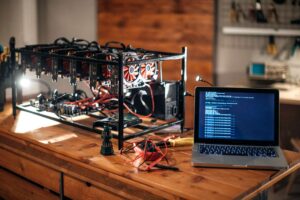Smart Home Technology: Making Your Life Easier, Safer, and More Efficient
Our homes are evolving. They are becoming smarter, more connected, and increasingly responsive to our needs. Smart home technology is no longer a futuristic concept; it is a present-day reality, transforming everyday living for average users. These interconnected devices and systems offer unparalleled convenience, enhanced security, and significant energy savings. This article explores how smart home technology works and highlights its practical benefits, showing how it can make your life easier, safer, and more efficient.
What is Smart Home Technology? Your Connected Living Space
Smart home technology refers to devices and systems that connect to a central network, often controlled via a smartphone app, voice assistant, or automated schedules. These devices communicate with each other and with you, allowing for remote control and intelligent automation of various household functions.
Key components of a smart home include:
- Central Hub/Controller: A device (like a smart speaker, a dedicated hub, or even your smartphone) that acts as the brain, coordinating all your smart devices.
- Connected Devices: Appliances, lighting, thermostats, security cameras, and more, equipped with Wi-Fi, Bluetooth, or other wireless communication capabilities.
- Automation: The ability to set up “routines” or “scenes” where devices perform actions automatically based on triggers (e.g., time of day, motion detection, your arrival home).
This interconnected ecosystem aims to simplify tasks and enhance your living environment.
Making Life Easier: Unparalleled Convenience
The primary appeal of smart home technology for many users is the sheer convenience it offers. It automates mundane tasks and provides effortless control over your environment.
- Lighting Control: Adjust lights from your phone, set schedules for them to turn on/off, or even change colors to set a mood. Imagine lights dimming automatically for movie night.
- Climate Control: Smart thermostats learn your preferences and adjust temperatures automatically. You can also change the temperature remotely before you arrive home, ensuring comfort.
- Appliance Management: Control smart plugs to turn off forgotten irons or coffee makers. Some smart appliances, like ovens or washing machines, can start remotely.
- Voice Assistants: Devices like Amazon Echo or Google Home allow you to control lights, play music, get news, and manage other smart devices using simple voice commands.
- Automated Routines: Set up routines like “Good Morning,” which might gradually brighten lights, turn on the coffee maker, and play the news. Or “Good Night,” which locks doors, turns off lights, and adjusts the thermostat.
These features save time and effort, making your home truly responsive to your lifestyle.
Enhancing Safety: Peace of Mind and Protection
Beyond convenience, smart home technology significantly boosts your home’s security and provides peace of mind.
- Smart Locks: Lock or unlock doors remotely from your phone. Grant temporary access to visitors or service providers. Receive notifications if a door is left unlocked.
- Security Cameras: Monitor your home from anywhere with live video feeds. Receive alerts for motion detection. Some cameras offer two-way audio, allowing you to speak to visitors or deter intruders.
- Video Doorbells: See and speak to visitors at your door, even when you’re not home. This helps screen unwanted solicitations and provides evidence in case of incidents.
- Smoke and Carbon Monoxide Detectors: Smart detectors send alerts directly to your phone, even if you’re away. Some can even pinpoint the exact location of the danger.
- Water Leak Sensors: Place these small sensors near water heaters, sinks, or washing machines. They alert you to leaks, potentially preventing costly water damage.
These security features offer a powerful deterrent and immediate alerts, protecting your property and loved ones.
Driving Efficiency: Saving Energy and Money
Smart home technology isn’t just about comfort and security; it’s also a powerful tool for reducing energy consumption and saving money on utility bills.
- Smart Thermostats: These devices optimize heating and cooling by learning your habits, adjusting temperatures when you’re away, and integrating with weather forecasts. This can lead to substantial energy savings.
- Smart Lighting: LED smart bulbs consume significantly less energy than traditional bulbs. Automation ensures lights are only on when needed, further reducing electricity use.
- Energy Monitoring Plugs: These plugs not only control devices but also track their energy consumption. This helps you identify “energy vampires” (devices that draw power even when off) and make informed decisions about usage.
- Automated Blinds/Shades: Smart blinds can automatically adjust to block sunlight in summer (reducing cooling needs) or let it in during winter (reducing heating needs), contributing to passive climate control.
By providing detailed insights and automated control, smart home tech empowers you to manage your energy consumption more effectively.
Getting Started with Smart Home Technology
For average users, starting a smart home journey can be simple.
- Start Small: Begin with one or two devices, like a smart speaker, a smart bulb, or a video doorbell. This allows you to learn the ecosystem without feeling overwhelmed.
- Choose a Platform: Decide if you prefer an ecosystem like Amazon Alexa, Google Home, Apple HomeKit, or a specific brand. Many devices are compatible across platforms.
- Consider Your Needs: Think about what problems you want to solve first (e.g., security, energy savings, convenience).
- Check Compatibility: Ensure new devices are compatible with your existing smart home hub or platform.
Conclusion: The Intelligent Home Awaits
Smart home technology is transforming how we live, offering a compelling blend of convenience, safety, and efficiency. It empowers average users to automate tasks, enhance security, and reduce energy consumption with ease. As devices become more intuitive and integrated, the intelligent home will become an even more indispensable part of modern life. Embracing smart home tech means stepping into a future where your living space actively works to make your life better.














Post Comment